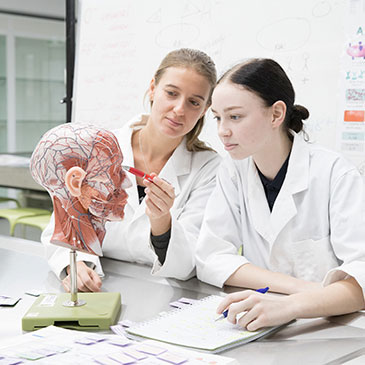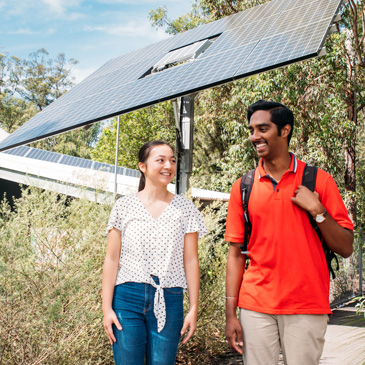To transform lives and add to human knowledge and understanding in a way that creates a future that benefits all. We will pursue our vision through our core principles of excellence, ethics, and engagement.
Excellence
- We commit to excellence in our work, ambitious to ensure that our teaching and learning, research, and engagement is of the highest quality.
- In the pursuit of excellence, we reach across boundaries of all kinds within and beyond the University. In particular, we pride ourselves on our interdisciplinary work and our ability to engage with industry, government and the not-for-profit sector.
- Students will be provided with high-quality education and the capacity to develop and apply knowledge to exercise influence and make meaningful lifelong contributions to their communities.
- We recognise the central role of academic freedom and a robust culture of free speech to university life.



Ethical behaviour
- We celebrate being an inclusive and diverse community, and create pathways to education for a wide variety of people regardless of their background.
- We have a long-standing commitment to environmental sustainability and guardianship of our unique campus ecosystems.
- We are committed to social justice and see the United Nations Sustainable Development Goals (SDGs) as one powerful articulation of these values. The SDGs set out 17 goals to ‘achieve a better and more sustainable future for all’ in areas such as poverty reduction, good health, quality education, and climate action.



Engagement
- We recognise the unique place of First Peoples in our history and culture and the importance of respecting Indigenous knowledge, culture and talent.
- We are ethical in our collaborations with a wide variety of partners, seeking mutual and sustainable value in our partnerships.
- We recognise our particular obligations to the communities in which our campuses are based and are committed to being good neighbours who enhance local life.
- We engage globally, paying particular attention to our enduring relationships with Asian and Pacific countries. Our international relationships seek to enhance the capacity of partners in areas such as teaching and learning, research, and community partnerships.
History and values
Griffith welcomed its first students in March 1975 at a ceremony attended by the Prime Minister, the Honourable Gough Whitlam. Our innovative approach included establishing the schools of Modern Asian Studies and Australian Environmental Studies—the first of their kind in Australia. We also were leaders in bringing together academic disciplines to solve contemporary problems and providing access to university education to a wider group of people.